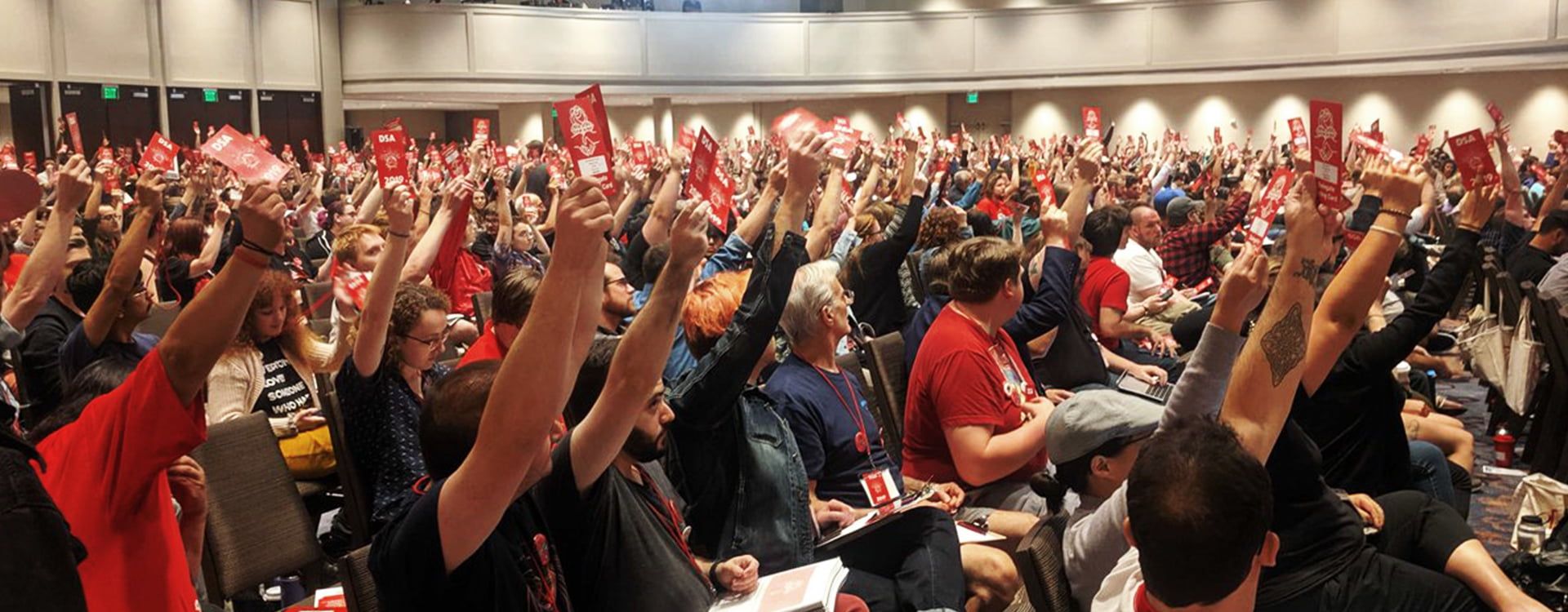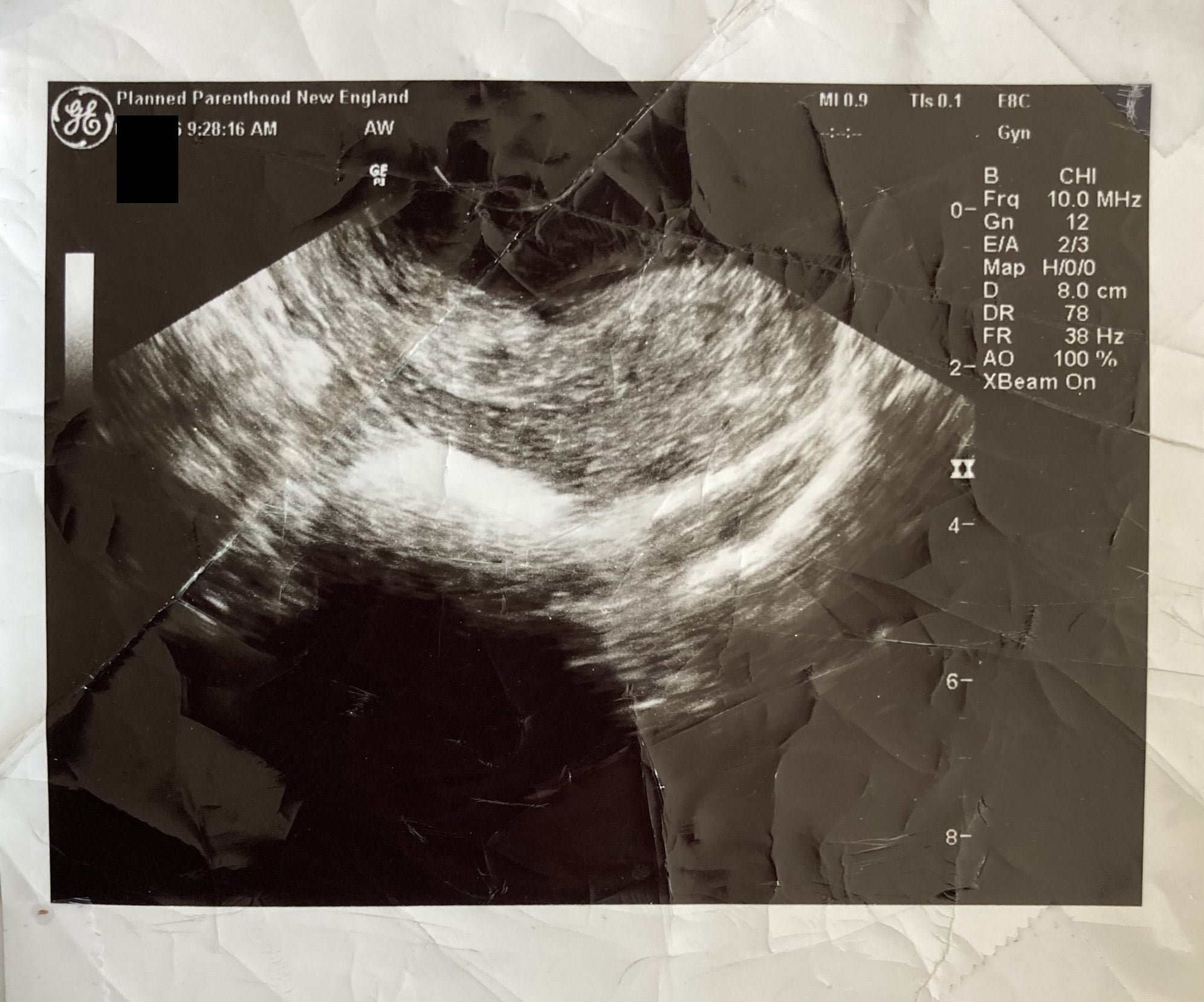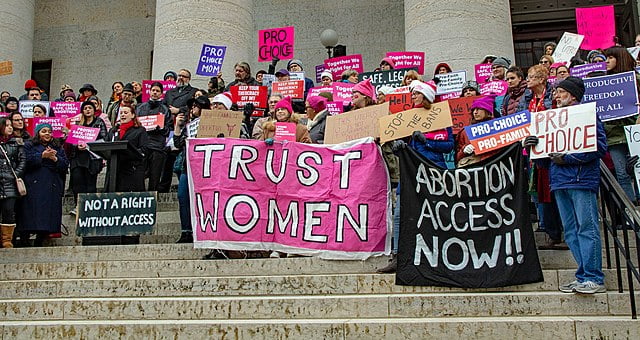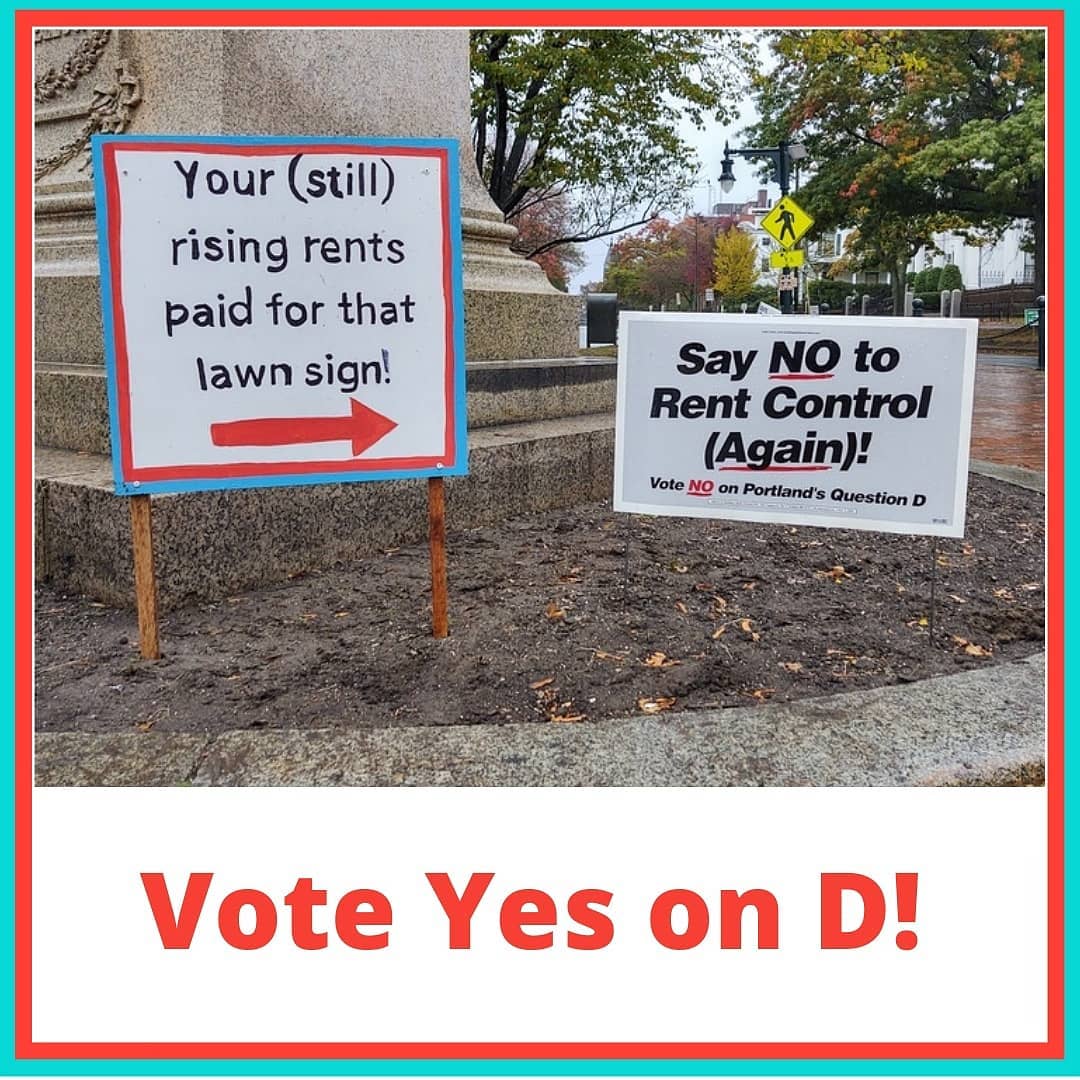The Democratic Socialists of America will hold its bi-annual National Convention August 1 to 8, bringing together more than 1,000 delegates from across the country representing DSA’s 90,000 members. Here in Maine, DSA has had a busy year organizing emergency pandemic mutual aid and advocating for drug reform, the closure of Long Creek, and for Maine Public Power. We’ve marched in solidarity with Black Lives Matter, spoken out for Palestine, and supported the nurses union at Maine Med, We produced the Maine Mural podcast and hosted discussions involving socialist-feminism, ABCs of Socialism, a Transformative Book series, and new member welcome study groups and orientations. We addressed the emotional and psychological wellbeing of our membership through the Caring for Comrades initiative. We helped lead the People First Portland referenda backed the progressive majority for the Portland Charter Commission. And to top it all off we played some sports and initiated Pine and Roses. If you’re not a member of DSA please join!
Maine delegates receive their democratic mandate from the state’s 700 members to use their best judgement in participating in the Convention’s debates and discussions. Along with that mandate comes a responsibility to report back so that members can judge what delegates said they would do against what they actually did at the convention. Keep in mind, a lot of wheeling and dealing can happen during a convention, so delegates are not bound to vote this way or that on particular resolutions. Rather, they must adapt to amendments, participate in the debate, and do their level best to support those proposals most conducive to national and local work. 
Pine and Roses will run several articles before and after the DSA Convention to review its outcomes and help explain its most important decisions. We are going to rely on our delegates to speak. We’ll start this week with meeting some of our candidates and hearing about how and why they joined DSA and their views of DSA’s progress nationally and here in Maine.
*****
Pine and Roses: Could you tell us a little bit about where you’re from, what you do, how you got involved in social justice and political organizing, and why and when did you decide to join DSA?
Todd: I’ve spent my entire life so far in Maine. Raised near Bangor, attended university in Orono, and have been living in southern Maine for seven years now. I currently work in marketing, but my formal education is in History and Philosophy. I’ve been attracted to socialist theories since my teens, but have always remained an armchair socialist until May 2018 when I joined Maine DSA. Since then I have been neck deep in the local chapter, helping with administration, mobilizations, and campaigns. It has been very rewarding on an existential level, and I invite others to join us.
Caleb: I joined DSA in 2017 when I founded Worcester, Massachusetts DSA while at secondary school. I grew up in Maine so linked up with (then) Southern Maine DSA in 2018 when I returned to Portland. Since then, I’ve built our chapter’s capacity through administrative projects like building out our HGO infrastructure. I believe that we should organize everyone, everywhere. I’m not concerned with theoretical debates or academic arguments. We can learn a lot from the past, but I think we need to be pragmatic and experimental in our approach to fighting for socialism.
Chelsea: I grew up in Southern Maine and spent about eight years living in Portland off and on before ultimately being priced out to the suburbs along with many others. The years I spent earning minimum wage and struggling to eat or pay rent to inattentive slumlords has informed much of my activism today. I joined Maine DSA in early 2020 just as the People First Portland campaign was beginning to gather signatures for DSA’s slate of citizen referendums. Hearing that my local DSA chapter was tackling issues that would affect me and my neighbors directly — especially rent control and a minimum wage increase — motivated me to finally join the fight.
Jon D: Grew up in Massachusetts, went to art school and moved to Boston after college. Found a job picture framing, while selling art on the side to make rent. I started thinking about socialism seriously when I was so frustrated by the repeating cycle of get a raise, rent goes up, get a raise, health insurance AND rent goes up, with student loan payments always haunting you every month. Constantly seeing fellow artists struggle and give up art all together as they had no free time, while others without loans get work, since y’know, they have the time to make art. The 2016 election and AOC and much more finally pushed me to join Maine DSA in 2017. I went to a meeting in Portland one night and asked how I could help, and I’m still here.
Jake: I’m from Lewiston-Auburn and am currently living in Portland while I attend university here. I saw the success of the People First Portland Campaign and knew that as a grocery store worker, I had to join Maine DSA and support their efforts to establish a social order which was not dominated by a small capitalist class, but rather by the vast majority of working people. The People First Portland and People First Charter campaigns were my first political actions, but I look forward to taking many more.
Pine and Roses: In your opinion, what was Maine DSA’s most significant accomplishment or initiative this year and what have been its biggest challenges or shortcomings.
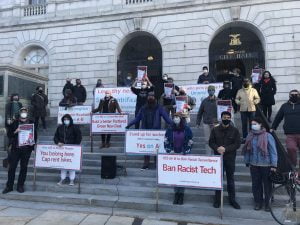
Campaigning for People First Portland referenda in fall 2020.
Todd: If I may cheat a little bit, I would go back to November 2020 when Maine DSA led an effort to pass working-class referendums in Portland, and in the end got four of their five initiatives passed at the ballot box. These include real material reforms like rent control, increased minimum wage, a ban on facial surveillance technology, and a pro-labor Green New Deal. It showed that when working people come together in a committed fashion, they can absolutely achieve real change.
Caleb: Our greatest accomplishment of late is also an example of our shortcomings. In the Portland Charter Commission election, we elected the candidates we endorsed. This is a great accomplishment! Even in such a low-turnout election, we mobilized and replicated our successes on the November 2020 referenda. At the same time, however, the contest revealed how much further we have to go. We can win elections and elect candidates, yes, but can we hold them accountable? Our big challenge will be re-thinking how we use our demonstrated ability in the electoral ring to get candidates who will be steadfast agents of DSA and our priorities.
Chelsea: Our chapter’s priority campaigns this year for the Portland Charter Commission and Maine Public Power have been two of the most ambitious fights we’ve set our sights on. I am proud of my comrades who have been working tirelessly to bring the struggle to the legislature and voting booth. I am personally most excited so far this year for our chapter’s work on the campaign for the PRO Act. We not only saw Senator King flip and support the act, but throughout the campaign we also forged stronger ties with local unions and workers in the struggle for dignity in the workplace. Additionally, many who worked on the PRO Act also lent support to the Maine Med Nurses and Portland Museum of Art campaigns to form unions. Their organizing victories are their own but I am so proud that Maine DSA had a hand in shoring up community support for these efforts.
Jon D: Maine Public Power (MPP) campaign is (I think) the largest state campaign Maine DSA has gone for, and the most consequential. Not just for having a public power for the state, but the possibility of expanding our reach and recruiting members. Connecting with members outside Portland metro has always been a problem and since CMP is almost universally hated, MPP should be a good way for the Maine DSA to reach the rest of the state.
Jake: Our chapter has had much success over the past year including the People First Portland campaign, the People First Charter campaign, playing a major role in National’s PRO Act campaign, and statewide pressure campaigns in support of drug decriminalization and the establishment of a consumer owned electric utility. Our greatest challenge is and continues to be the mobilization and recruitment of membership and moving towards a truly statewide chapter. We also struggle to break out of electoral and parliamentary work and into the everyday lives of working people. I firmly believe the Public Power Campaign will be very successful in addressing some of these issues as they have always demonstrated their capacity to organize statewide and I look forward to our chapter’s future projects.
What have been national DSA’s biggest steps forward and our biggest stumbles? In general, without yet getting into specific resolutions yet (that’s for our next interview!), what national priorities do believe DSA should set for itself in the coming couple years?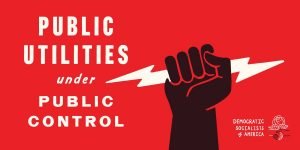
Todd: National DSA has really stepped up their efforts to provide guidance and resources to local chapters. From offering access to Voter Action Network for canvassing, to providing literature and trainings to help improve organizing, leadership, and priority campaigns. But, even though we’re almost 100,000 members strong, there’s still a long way to go. Which is why I’m hopeful this convention can start to solidify DSA’s internal structures and narrow our focus a little more. Personally, I’m hopeful we make a firm labor strategy and the Green New Deal priority campaigns, while internally focusing on making DSA more bilingual and open to our country’s many Spanish speaking residents.
Caleb: I’ve been impressed by DSA’s work on the DSA Green New Deal, PRO Act, and EWOC. Let’s stay the course. I think a big thing for DSA national should be tying those big campaigns and priorities to the myriad state and local efforts, like Portland’s own green new deal, minimum wage law, and the statewide effort to start the Pine Tree Power Co. Getting national mobilizing for state- and local- level campaigns that align with Green New Deal, PRO Act etc., will give us a big boost.
Chelsea: The monumental growth of DSA’s membership over the past few years has been incredible, but it’s also put forth its own set of challenges. I am optimistic that this year’s convention will allow us to solidify our focus, get a clearer picture of the fight ahead, and strengthen our org structure. DSA’s electoral victories across the country have shown beyond a doubt that organizing WORKS! It’s my hope that in the coming years we will put more effort into empowering the working class to assert our power outside of the voting booth. The skills we have learned by working with candidates can and should be applied to organizing tenants, building militant union power coast to coast, and slashing the budgets of every police force in America.
Jake: National seems to have really stepped up its support for chapters in recent years which is greatly appreciated. National should continue to facilitate the sharing of resources and information between chapters. National should also seek to expand its priorities and develop international ties with successful left parties.
Next time, we’ll meet more of Maine’s DSA delegates and ask them about several of the debates at the heart of this year’s convention.
